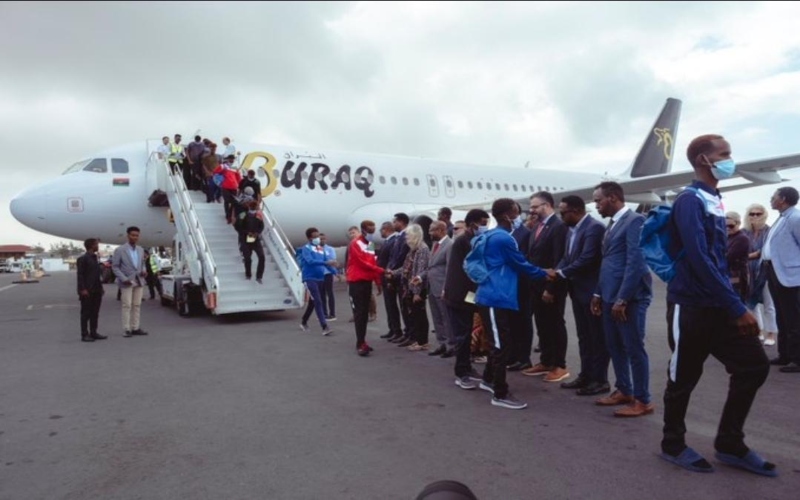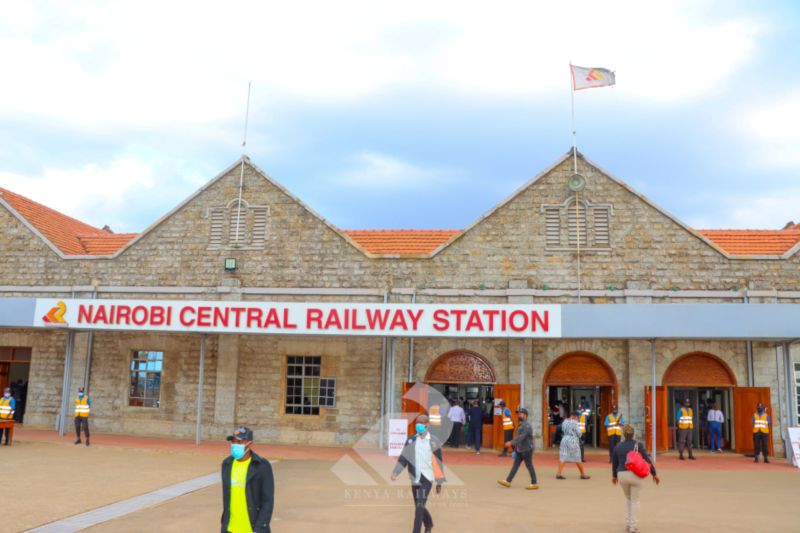173 Somalis repatriated from Libya in joint government-IOM operation

Following the arrival of the group in Mogadishu, 22 individuals were flown on to Hargeisa in Somaliland, while the remaining 151 stayed in the capital to undergo initial reintegration support.
A total of 173 Somali citizens who had been detained in Libya were flown back to Somalia on Tuesday in a repatriation exercise jointly organised by the Somali government and the International Organisation for Migration (IOM).
The operation, which was carried out with additional support from the European Union, marks the latest step in ongoing efforts to assist Somalis stranded abroad and facing severe risks on irregular migration routes.
More To Read
- Somali universities warn against security agency’s interference on campuses
- Somali parties say electoral body ignored concerns on December 25 Mogadishu polls
- UN Security Council extends sanctions oversight on Al-Shabaab
- Djibouti confirms Eritrea’s formal exit from IGAD regional bloc
- Special forces across Africa meet in high-level Nairobi forum to counter terrorism and emerging threats
- AfDB grants full debt relief to Somalia after decades of economic turmoil
The returnees arrived at Aden Adde International Airport in Mogadishu, where they were formally received by senior government officials.
The officials described the mission as part of a broader commitment to prioritise the safety of Somali nationals caught in difficult circumstances outside the country.
Following the arrival of the group in Mogadishu, 22 individuals were flown on to Hargeisa in Somaliland, while the remaining 151 stayed in the capital to undergo initial reintegration support.
The IOM noted that the operation represented a collaborative achievement between national authorities and international partners working to address challenges faced by migrants.
In a statement, the organisation underlined the significance of the exercise, saying: “This life-saving operation gives them a dignified chance to rebuild hopeful futures in Somalia.”
The IOM also reiterated its commitment to continue supporting Somali institutions in providing alternatives for those who may otherwise attempt unsafe journeys abroad.
Among the returnees were men, women, and children who had spent extended periods in detention centres in Libya. Many had been intercepted while attempting to cross North Africa on their way to Europe.
Others had fallen into the hands of traffickers who subjected them to abuse and exploitation. One of the women who was part of the group described her experience as unbearable.
Speaking at the airport shortly after her arrival, she said: “Migration through irregular routes is torment and suffering. I am happy to have returned to our country.”
The Somali government has repeatedly emphasised that irregular migration remains one of the most pressing humanitarian challenges facing the nation. Officials highlight that thousands of Somalis continue to embark on perilous routes through Sudan and Libya in search of economic opportunities or pathways to Europe. For many, however, the journey is marked by arrest, violence, and even death, particularly during attempts to cross the Mediterranean Sea.
The European Union, which has been supporting several of the repatriation missions in recent months, has indicated that it views such programs as an essential response to migration-related vulnerabilities. By helping stranded Somalis return home safely, the EU and its partners hope to reduce exposure to trafficking networks and prevent further loss of life.
For those returning, the immediate priority is reintegration into their communities. IOM and government agencies are expected to provide assistance, including temporary accommodation, counselling, and vocational training, to help the returnees restart their lives. Reintegration, according to both Somali and international officials, is vital in ensuring that those brought back do not feel compelled to risk their lives again on irregular migration routes.
The operation on Tuesday is one of several that have been carried out this year under a wider program aimed at returning Somali nationals from detention centres in Libya. Each mission requires coordination between Somali authorities, IOM, and host countries, as well as financial support from external partners.
Analysts say that while repatriations offer a critical humanitarian response, long-term solutions will depend on improving security, governance, and employment opportunities inside Somalia. The government has acknowledged these challenges and has pledged to strengthen collaboration with development partners to create viable alternatives for young people and others vulnerable to the dangers of irregular migration.
Top Stories Today

















































